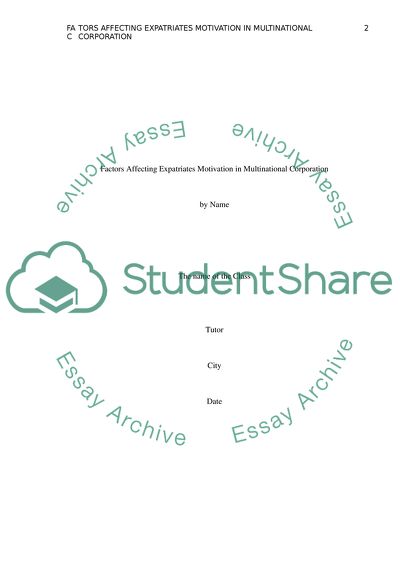Cite this document
(Factors affecting expatriate motivation in multinational corporation Essay, n.d.)
Factors affecting expatriate motivation in multinational corporation Essay. https://studentshare.org/human-resources/1818670-factors-affecting-expatriate-motivation-in-multinational-corporation-company
Factors affecting expatriate motivation in multinational corporation Essay. https://studentshare.org/human-resources/1818670-factors-affecting-expatriate-motivation-in-multinational-corporation-company
(Factors Affecting Expatriate Motivation in Multinational Corporation Essay)
Factors Affecting Expatriate Motivation in Multinational Corporation Essay. https://studentshare.org/human-resources/1818670-factors-affecting-expatriate-motivation-in-multinational-corporation-company.
Factors Affecting Expatriate Motivation in Multinational Corporation Essay. https://studentshare.org/human-resources/1818670-factors-affecting-expatriate-motivation-in-multinational-corporation-company.
“Factors Affecting Expatriate Motivation in Multinational Corporation Essay”. https://studentshare.org/human-resources/1818670-factors-affecting-expatriate-motivation-in-multinational-corporation-company.


